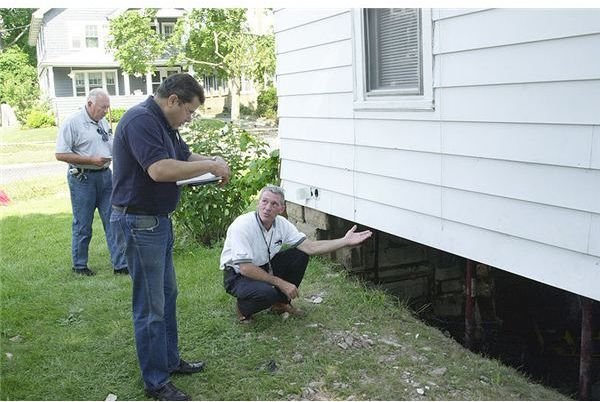Laws on Consumer Protection for Selling a Faulty Home

Real estate agents build their reputations as reliable professionals whose knowledge and expertise could be relied upon to get the best in real estate deals. The most common problems they encounter are disclosure lawsuits, which stem from supposed violations of laws serving as consumer protection. For selling a faulty home, the issue is often wherein certain defects will show up only after the buyer has moved in the newly acquired property.
If you’re in the process of selling your home or would like to act as broker engaged in selling real estate, you should be aware as to what exactly are these laws that can be used against you as consumer protection for selling faulty properties by failing to disclose the defects or to willfully hide such defects from the buyer.
(1) The Consumer’s Statutory Rights:
- First, the consumer has the right to receive goods that are of quality.
- Second, the consumer has the right to receive goods that will suit his purpose and not be forced to accept other than what he intended to buy as the means to satisfy his purpose.
- Third, the consumer has the right to receive the goods as it was described to him which served the basis for his decision to buy the goods.
(2) Uniform Commercial Codes Article 2 – Sales
In addition to these statutory rights, there are also the existing Uniform Commercial Codes Article 2 – Sales 2-Implied Warranty; Merchantability; Usage of Trade.
Sec. 2-314: It states that unless it has been excluded or modified, there is an implied warranty that what is being offered for sale is merchantable or of good quality. A good that is merchantable will not elicit any objection when it is exhibited for trade and is of fair and average quality. Its qualities conform to how the goods are described and any variation it possesses does not make it different from the products bearing the same classifications as its counterpart. The goods are contained, labeled and packaged according to the requirements of the product and the product itself will conform to the descriptions used to label the product. If the seller wants to remove the implied warranty of merchantability, a disclaimer or specific statement is issued that there is no implied warranty existing in the purchase of the product.
Sec. 2-315: That the seller is aware of the purpose as to why the buyer is interested in purchasing the goods and by this, the buyer can rely on the seller’s skills and expertise that only the products or goods, suitable for the buyer’s purposes will be recommended or be offered by the seller to the buyer. Unless the seller makes a disclaimer or explicitly state that he does not warrant the usability of the goods that he has recommended and that he does not warrant that it is usable for the purpose it was being bought for by the buyer.
Unless specifically excluded or stated that the implied warranty is excluded, a merchantable property is one that is bought and paid for, at a price where its worth in the market place is equivalent to one that is not marred by breakage, damage, contamination or flaw. However, implied warranty does not apply if the buyer has examined the goods thoroughly and the defects were obvious and could be seen during such examinations. Implied warranty is also removed if the buyer refuses to examine the product when the seller demanded for its examination. Implied warranty is further limited by section 2-718 of the Unified Commercial Codes.
Please proceed to the next page to know what steps to take to avoid violating laws that serve as consumer protection for selling a faulty home without properly disclosing its inherent defects.
The Seller’s Defense Against Laws on Consumer Protection for Selling a Faulty Home - Continued

In being charged for breach of implied warranty when selling homes, it would mean that the buyer has filed a lawsuit against the seller or the agent of the seller, for violating the laws that serve as consumer protection for selling a faulty home to a buyer. Hence, when selling homes, it is important that one should properly inspect the house being sold before recommending it to a buyer.
Real estate instructors are of the opinion that as agents or brokers, it should be natural for the latter to make sure that what he is selling is of good quality and suits the purpose of the buyer he is recommending the home to. For this purpose, he can go as far as hiring a licensed and reliable home inspector to go over and inspect the house rather than risk lawsuits. This way a broker or an agent will have the confidence to sell and recommend the house for merchantability and suitability to the purpose of the buyer not only as means of avoiding lawsuits but also of ensuring that his reputation as a competent and reliable broker or agent will be enhanced.
If the house inspector discovers any defects, the seller or his agent or broker should communicate said defects to the prospective buyer in writing, as a form of disclosure. Should the buyer still show interest in proceeding with the acquisition of the house despite such written disclosures of defects, the agent/broker should also recommend in writing to the buyer that an independent house inspector be hired to fully examine the house.
Thus, acting conscientiously as a seller or as a seller’s agent or broker engaged in selling homes, is the best defense against laws which provide consumer protection against selling a faulty home. It is important that before recommending a property and its improvement, all actions should be taken to ensure that the real estate is merchantable and suitable to the purpose of the buyer, that there will be no objections raised should the property be traded and that the buyer will receive or acquire the property in the way that it has been described or presented. In order to avoid the negative consequences of implied warranty, the seller or his agent/broker, should disclose all visible and known defects in writing. If necessary, submit a written advice to the buyer that an independent house inspector be hired to fully examine the house. This way, the seller or the agent/broker will not be charged for violating laws that provide consumer protection for selling a faulty home to a buyer and keep his reputation for selling quality homes, intact as well.
Reference Materials and Images Credit Section
Reference Materials:
- The Uniform Commercial Code Art 2 Sales- https://www.law.cornell.edu/ucc/2/article2.htm
- https://www.housedetective.com/
- https://legal-dictionary.thefreedictionary.com/merchantable
- https://www.thesite.org/homelawandmoney/money/budgetandbuy/consumerrights
Images Credit:
- Wikimedia Commons
